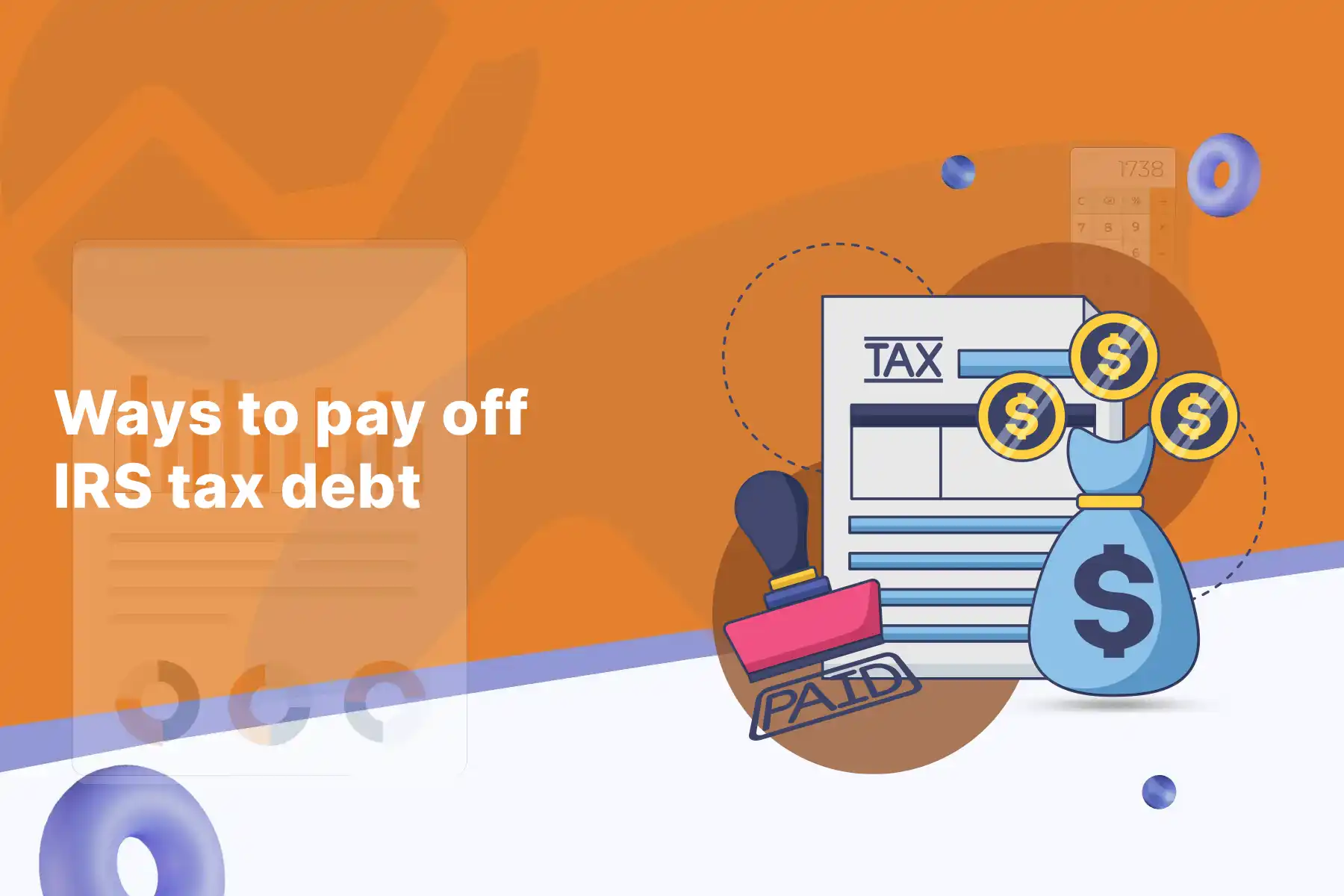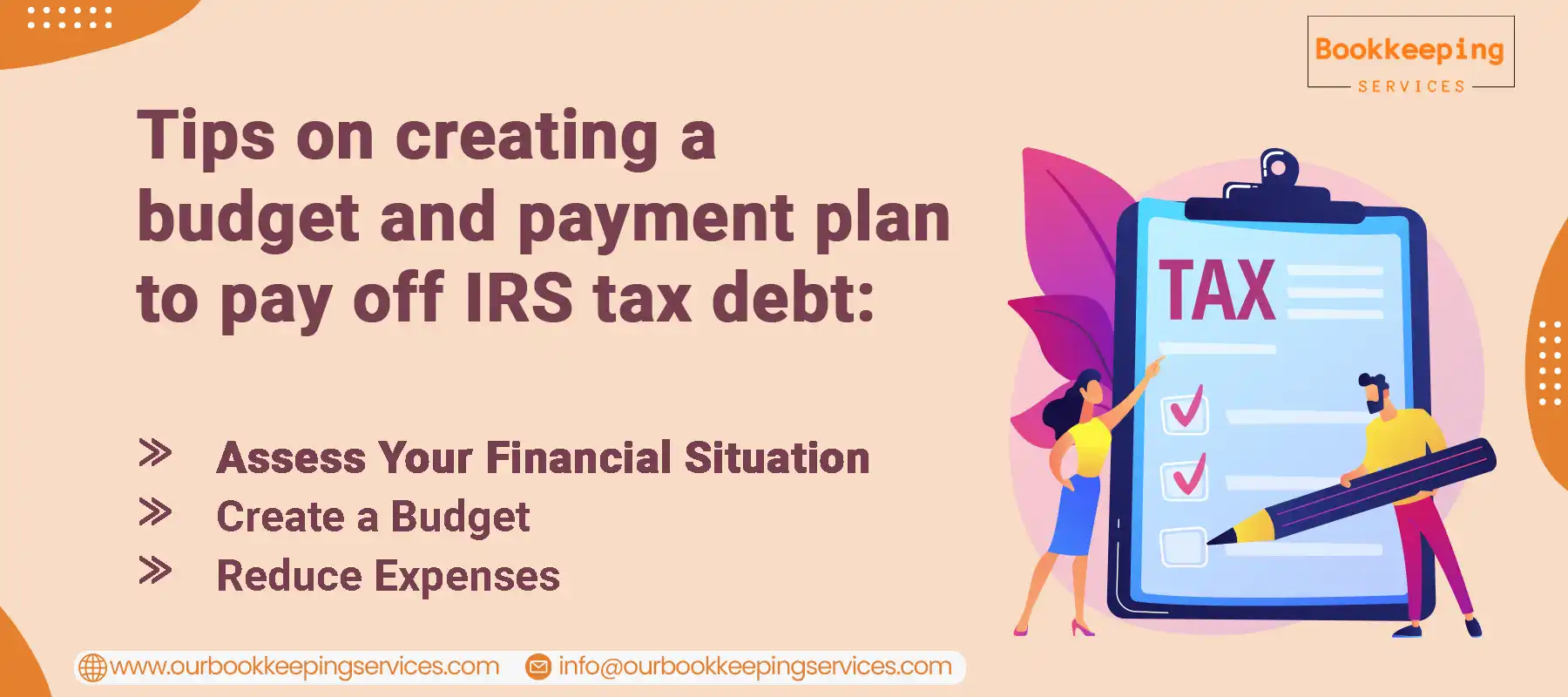
Ways to pay off IRS tax debt
Dealing with IRS tax debt can be a stressful and overwhelming experience. When taxpayers owe a tax debt to the IRS, they can face interest and penalties, wage garnishments, and even legal action. Fortunately, several ways exist to pay off IRS tax debt and avoid these consequences. From negotiating with the IRS to exploring tax debt forgiveness options, this blog will provide tips and strategies for paying off your tax debt and getting your finances back on track.
What Is IRS Tax Debt Payment?
IRS tax debt payment refers to repaying unpaid taxes owed to the Internal Revenue Service (IRS). Tax debt can arise when taxpayers fail to pay their federal income taxes, either because they cannot afford to pay or fail to file their tax returns on time. When taxpayers owe a tax debt to the IRS, they are typically required to pay the full amount owed, plus interest and penalties. If they fail to pay their tax debt, the IRS may take legal action to collect the debt, including garnishing wages, levying bank accounts, and seizing assets.
Different IRS Tax Debt Payment Options
Installment Agreements
An installment agreement allows taxpayers to pay off their tax debt in monthly payments over time. The IRS typically requires taxpayers to pay off their tax debt within 72 months or less, depending on the amount owed. The advantage of an installment agreement is that it can help taxpayers avoid more severe penalties, such as wage garnishments and asset seizures. However, it can also result in the accrual of interest and penalties, which can add up over time.
Offers in Compromise
An offer in compromise is a settlement agreement between the taxpayer and the IRS, where the taxpayer agrees to pay a reduced amount of their tax debt. This option is only available to taxpayers who demonstrate that they cannot afford to pay their tax debt in full, even with an installment agreement. The advantage of an offer in compromise is that it can reduce the amount owed to the IRS, making it easier for taxpayers to pay off their debt. However, the process can be complex, and not all taxpayers qualify for this option. You can contact us to know more regarding this topic.
Currently Not Collectible Status
Not collectible (CNC) status is an option for taxpayers who cannot pay their tax debt due to financial hardship. If the IRS grants CNC status, they will stop all collection activity until the taxpayer's financial situation improves. While this option can provide temporary relief, interest, and penalties will continue to accrue, and the IRS can revoke CNC status if the taxpayer's financial situation improves.
Partial Payment Installment Agreements
A partial payment installment agreement (PPIA) is similar to a regular one but allows taxpayers to pay reduced tax debt over time. The monthly payment amount is based on the taxpayer's ability to pay, and the remainder of the tax debt is forgiven after the agreed-upon term is completed. The advantage of a PPIA is that it can reduce the amount owed to the IRS, making it easier for taxpayers to pay off their debt. However, it can also result in the accrual of interest and penalties, which can add up over time.
Creating a Budget and Payment Plan For IRS Tax Debt Payment
Below are some tips on creating a budget and payment plan to pay off IRS tax debt.

Assess Your Financial Situation
The first step in creating a budget and payment plan is to assess your financial situation. Look closely at your income, expenses, and debt to determine how much money you have available to pay off your tax debt.
Create a Budget
Once you've assessed your financial situation, create a budget considering all your expenses, including your tax debt. Be sure to include all of your monthly expenses, such as rent, utilities, groceries, and transportation, as well as any other expenses you may have, such as medical bills or credit card debt.
Reduce Expenses
If your budget shows that you don't have enough money to pay off your tax debt, consider ways to reduce your expenses. This could include cutting back on unnecessary expenses, such as eating out or buying new clothes, or saving money on necessary expenses, such as finding a cheaper apartment or carpooling to work.
Avoiding Tax Debt in the Future
- Record your annual income, expenses, and tax payments.
- Ensure you have the appropriate taxes withheld from your paycheck or make estimated tax payments if you are self-employed.
- Keep up-to-date on tax law changes and how they may affect you.
- Consider hiring a tax professional to help with tax planning and preparation.
- Respond promptly to any notices or correspondence from the IRS to avoid penalties and interest.
- If you owe taxes, pay them on time to avoid penalties and interest.
- If you cannot pay your taxes in full, consider payment options such as an installment agreement or an offer in compromise.
- Be cautious of scams that help you reduce or eliminate your tax debt. Always verify the legitimacy of any tax-related services or offers before providing personal information or payment.
Consequences of Ignoring Tax Debt
If you ignore your tax debts, you may face serious penalties, which can increase the overall cost of your taxes by adding fees and extra interest to your balance. Late fees start at 0.5% of the tax debt, while interest comes at the federal short-term rate plus 3%. If you ignore the debt, the government may garnish your wages and file liens and levies against your property. This can result in the loss of your assets altogether. Additionally, your credit score will take a hit, making it harder to secure a loan or credit card. However, you can reduce or eliminate these consequences by getting on a repayment plan with the IRS.
How Can We Help You?
Our bookkeeping services can help you manage your tax debt and avoid future issues. We can conduct a tax debt analysis to assess the extent of your debt, review your financial statements, and identify potential areas for cost-cutting or revenue generation.
Our team can also help you explore different IRS tax debt payment options, including installment agreements and offers in compromise, and assist in negotiating with the IRS on your behalf. We can create a realistic budget and payment plan to help you pay off your tax debt, reducing the risk of penalties and interest charges.
Previous Post